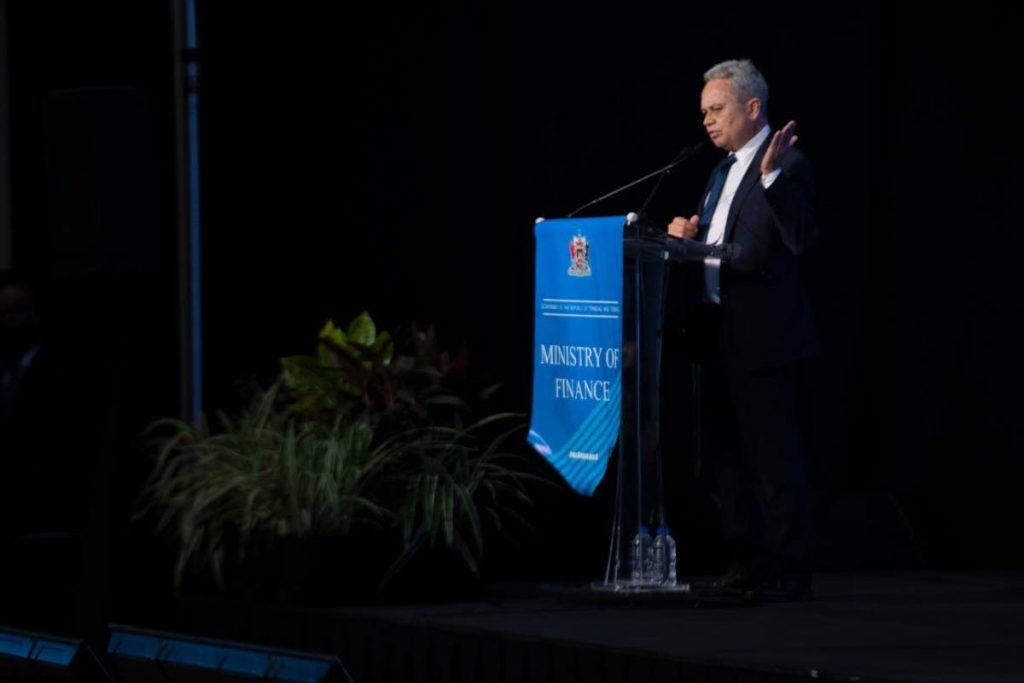Imbert: Public sector salaries, wages cost taxpayers $20b

Public sector salaries and wages cost taxpayers at least $20 billion a year, or about $1.5 to $1.7 billion a month, Finance Minister Colm Imbert said Monday.
That’s including direct charges, appropriated funds, transfers and subsidies, and statutory boards, but excluding the Tobago House of Assembly.
“The direct public service is $9 billion, but the rest of people we look after and make sure they get salaries every month is another $11 billion. So, you are talking $20 billion a year in salaries and wages in the public sector,” Imbert said.
Transfers and subsidies regularly exceeded 50 per cent of total government expenditure – in 2020 total estimated expenditure was $50.6 billion, but transfers and subsidies amounted to $27.4 billion. In 2019, expenditure was $50.5 billion, and transfers and subsidies were $27.3 billion.
The Prime Minister promised Monday that Imbert would give TT “the unvarnished” truth about the country’s financial footing. And for the most part, the minister delivered the economic stark reality at the second Spotlight on the Economy, held at the Hyatt Regency Port of Spain. He did not, however, offer any immediate solutions, perhaps saving those for his budget presentation in the Parliament next Monday.
One of the harshest realities Imbert noted, as a teaser to the budget, is that “even with the best will in the world” revenue is unlikely to be more than $40 billion in 2021 – even as he noted earlier than mandatory spending (before capital and other discretionary expenditure) amounted on average to $42 billion.
This would suggest that any budget planned would already be in deficit, and that at least half of Government expenditure will be to cover public sector salaries. The current deficit has already been compounded by reduction in revenue because of economic challenges brought on by covid19. In 2019, government revenue was $46.57 billion; in 2020, revenue estimates were over $13 billion lower, at $33.4 billion. The estimated budget deficit is $17.3 billion for 2020.
“We don’t see it at all possible that we can cut pensions or any of the nightmare scenarios being promoted by those out there who want to create trouble. We can’t do that. We can’t cut pensions. We can’t cut social welfare benefits and so on. We have no plans at this point in time to retrench anybody in the public service, but we have to understand our situation. We have serious decisions to make.”
Among the things to consider, though, are subsidies to state utilities WASA and T&TEC. He said last year the State subsidised WASA some $2.5 billion, including standing for a US$100 million loan to pay off debts to Desalcott. The State also had to subsidise T&TEC $500 million to pay its debt to the National Gas Company for natural gas. It also spends hundreds of millions of dollars on fuel subsidies, bus transportation, chronic disease medication, the inter-island ferry service and air bridge, and $4-5 billion on covid19 relief.
Devaluation was not an option, he said.
“We continue to believe that no useful purpose will be served by devaluation, especially at this time when US dollar inflows are extremely low because of covid19 (because of) depressed oil and gas prices and production. And therefore, the inflows we were getting in 2018 and 2019 are significantly less. So, if we devalue what happens? He said Central Bank models suggested that the benefit to government revenue from a devaluation would be about US$30-40 million but inflation would increase immediately by about six or seven per cent.
“We continue at this time, now that foreign inflows are very low, to believe that devaluation is not the answer at this time.”
He also noted that the Heritage and Stabilisation Fund was US$300 million higher than it was in 2015 when the administration first came into office and the country had eight months’ import cover. Government withdrew US$600 million from the HSF in May and June to help with the economic strain caused by covid19. As of August 21, the fund’s balance was US$6.05 billion.


Comments
"Imbert: Public sector salaries, wages cost taxpayers $20b"